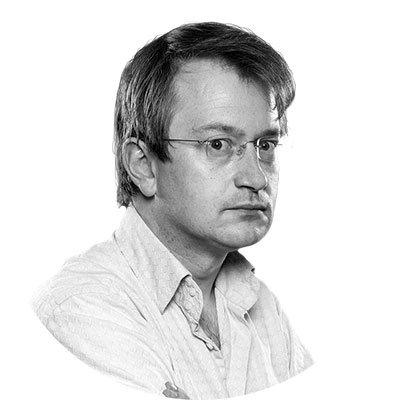Whittling down the ‘books that made me’ to a mere six is a detestable challenge: there will have been six books that have remade me in the last month!
In childhood I was certainly influenced by the wonderfully barbaric warnings in the German children’s book Der Struwwelpeter by Dr Heinrich Hoffman (1845). Though I still sucked my thumbs, knowing that the Long Legged Red Scissorman (one of the book’s characters) was ready to cut them off played a part in their departure from my mouth.
I’ve chosen next What Do You Care What Other People Think? by Richard Feynman (1988). Like the more well-known Surely You’re Joking, Mr Feynman?, this is a collection of transcriptions between Feynman and his partner in bongo-playing, Ralph Leighton.
Two central stories in the collection – one about his involvement in the investigation into the Challenger Space Shuttle tragedy, and the other the story of the blossoming love and untimely death of his first wife, Arline – show Feynman as scientific in his observation of dying, yet also entirely human in his grief. His description of loss, and our reaction to it, is heartbreaking.
Janna Levin is a writer who, in How The Universe Got Its Spots (2002), changes the way you look up at the night sky and wonder about how this immensity exists. Her science is rigorous; intriguing and enlightening physics is woven into her personal story acclimatising to a new working environment and shoddy Brighton bedsits.
See morereading lists of thebest science books:
- Five of the best science books for kids
- Seven really, really big books about space
- Linguistics: 7 language science books to help you finally understand what comes out of your mouth
Alan Moore is ferociously original. He’s a polymath whose fascination with science and magic, and the overlap between the two, gives him an ability to create something that is both familiar and utterly uncanny. He started with Doctor Who Weekly, continued with V For Vendetta and Watchmen, but I have chosen Jerusalem, a novel based around ideas of the ‘block universe’. It’s also longer than the Old Testament.
Next, I have chosen Re/Search 8/9 but I will buy anything by JG Ballard: one of the wisest men who ever lived and, if you read articles by his daughters, a rather wonderful parent too. His insight into human nature, and our reaction to technology, remains both prescient and disturbing, but also rather wonderful.
Rather than a sixth book, I am going to use all the word count I have left to list some of the other books that have made me, ‘me’ – Oliver Sacks’s The Man Who Mistook His Wife For A Hat (such humanity), Jane Goodall’s In The Shadow Of Man (such tenacity, such passion to learn and educate), Galapagos by Kurt Vonnegut ( a novelist of both bleak and yet somehow optimistic philosophy), James Baldwin’s Notes Of A Native Son (one the great poetic activists), Carl Sagan’s The Demon-Haunted World (the book that reignited my love of science), Diane Ackerman’s An Alchemy Of Mind (an author who writes with beauty that makes the subject utterly alluring)… and… and… and…
I’m a Joke and So Are You: A Comedian's Take on What Makes Us Human by Robin Ince is out now (£8.99, Atlantic Books)
